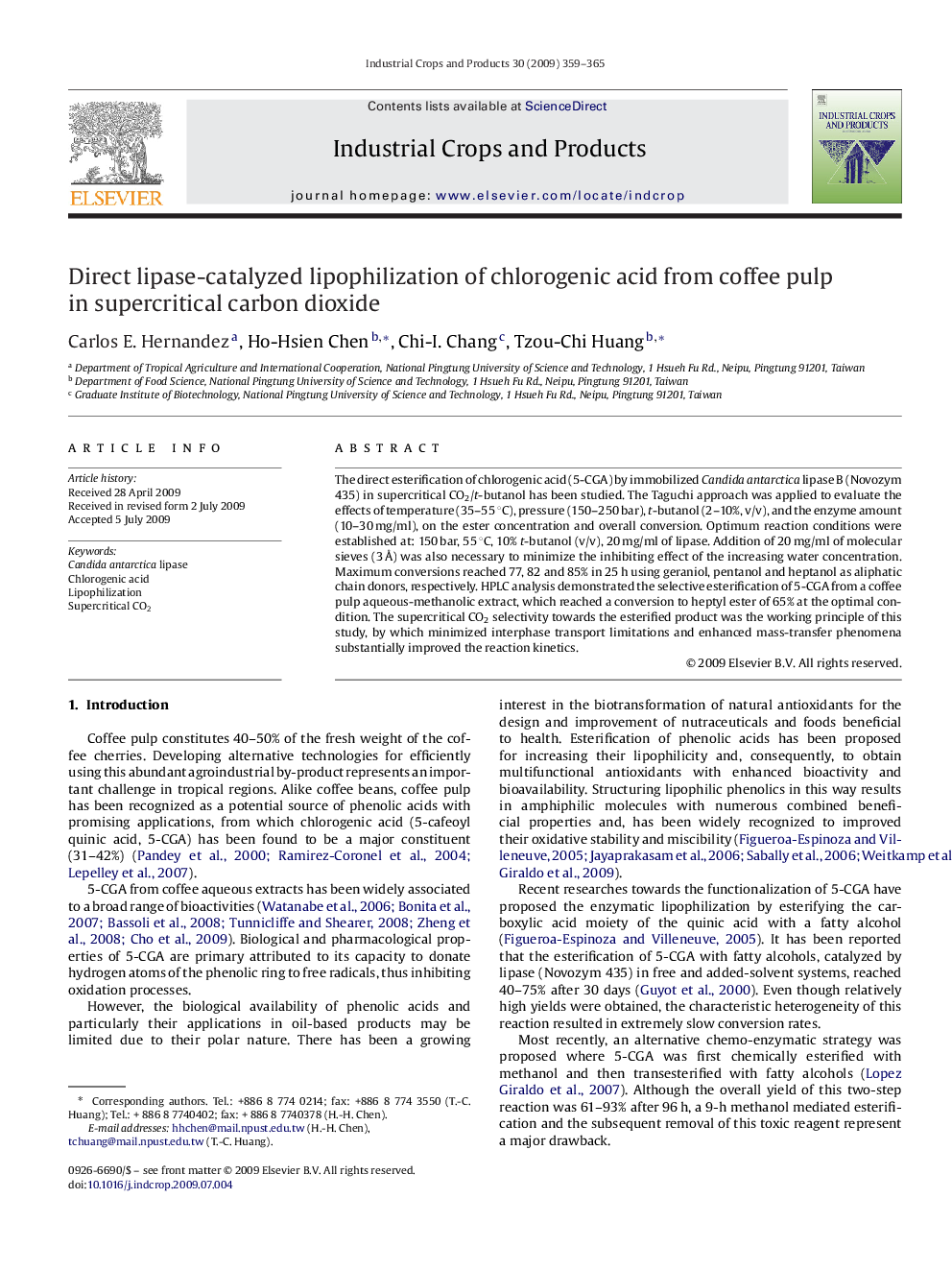| Article ID | Journal | Published Year | Pages | File Type |
|---|---|---|---|---|
| 4514838 | Industrial Crops and Products | 2009 | 7 Pages |
The direct esterification of chlorogenic acid (5-CGA) by immobilized Candida antarctica lipase B (Novozym 435) in supercritical CO2/t-butanol has been studied. The Taguchi approach was applied to evaluate the effects of temperature (35–55 °C), pressure (150–250 bar), t-butanol (2–10%, v/v), and the enzyme amount (10–30 mg/ml), on the ester concentration and overall conversion. Optimum reaction conditions were established at: 150 bar, 55 °C, 10% t-butanol (v/v), 20 mg/ml of lipase. Addition of 20 mg/ml of molecular sieves (3 Å) was also necessary to minimize the inhibiting effect of the increasing water concentration. Maximum conversions reached 77, 82 and 85% in 25 h using geraniol, pentanol and heptanol as aliphatic chain donors, respectively. HPLC analysis demonstrated the selective esterification of 5-CGA from a coffee pulp aqueous-methanolic extract, which reached a conversion to heptyl ester of 65% at the optimal condition. The supercritical CO2 selectivity towards the esterified product was the working principle of this study, by which minimized interphase transport limitations and enhanced mass-transfer phenomena substantially improved the reaction kinetics.
